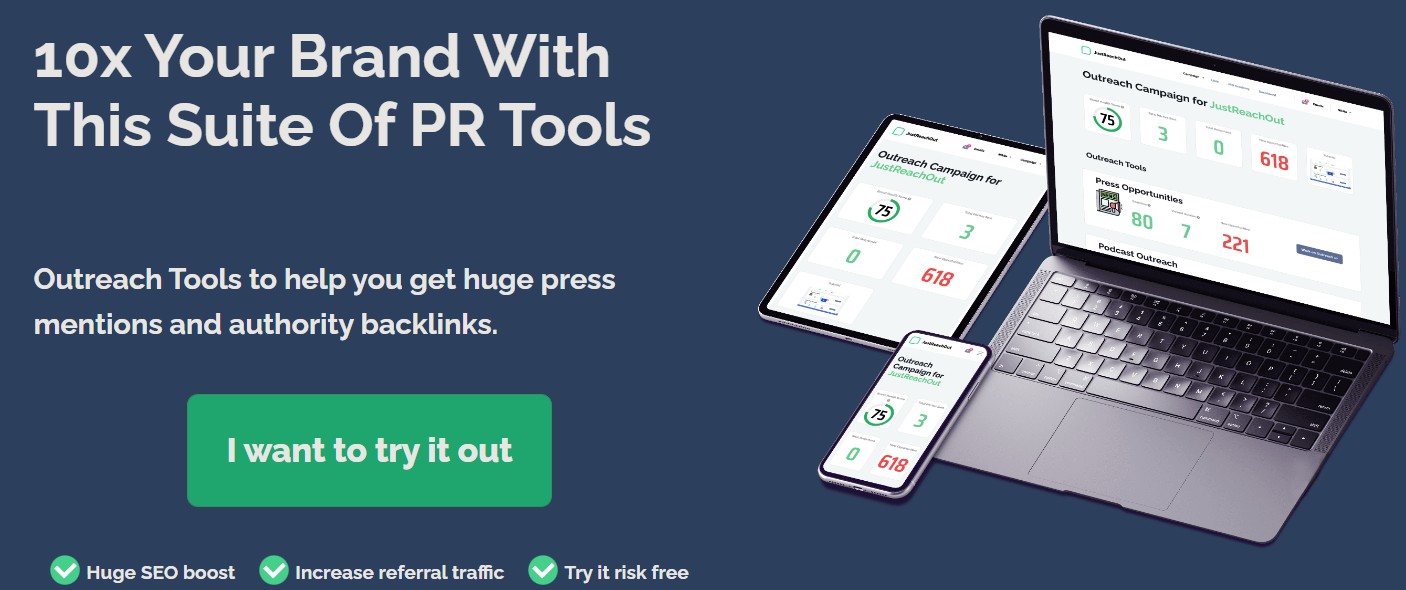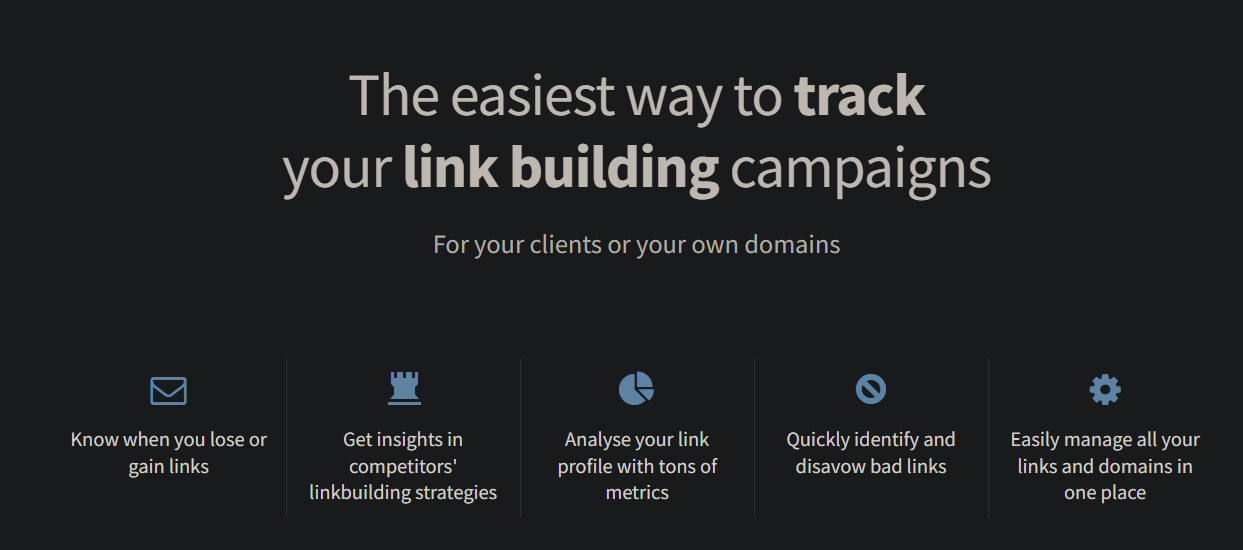
Backlinks are by far the top search engine ranking factor for showing up on Google’s first page.
Why is that? Because backlinks form the basis for the PageRank update that laid the cornerstone for Google’s ranking algorithm.
Not only that, but independent research has also confirmed that there is a direct correlation between backlinks and organic traffic.
A study conducted by Ahrefs concluded that 90% of content gets no traffic from Google at all.
With that said, let’s explore why backlinks are so important and how you can create a winning backlink strategy for your business.
What is a Backlink Strategy and Why is it Important?
Backlinks are simply links that point back to your website from a different domain.
The best part about backlinks is that they can help boost your website or blog just by hyperlinking back to you from an authoritative source.
In fact, a study published on Backlinko found that the number of domains linking to a page was the number one factor that had the highest correlation to rankings on Google.
Additionally, there is a ton of opportunity to be found from high domain authority websites by creating a successful backlink strategy.
Backlinks help prove to Google that your website is valuable, credible, and useful to its users.
That’s why they can be so helpful for your digital marketing strategy.
One way to track the number of backlinks you receive is by using Google Analytics.
Google Analytics is a free tool developed by Google to help you track your SEO metrics and referral traffic
With Analytics, you can see any broken or new backlinks you may receive.
The more backlinks your website has, the higher your authority and trustworthiness is. And, the higher your authority, the higher you will rank on Google.
How Do You Create a Backlink Strategy?
To be able to boost the ranking of your business on Google search results, you will need to improve your link-building methods and begin to find high-quality sources that will donate some of their domain authority.
As a site owner, you need to begin designing your backlink strategy.
Here are some methods you can use right now to earn backlinks:
- Reclaim unlinked brand mentions
- Get contextual links
- Become a source for publishers
- Reach out to other thought-leaders in your industry
- Update old pre-existing content
- Create infographics
- Publish ultimate guides for your audience
Write shareable and long-form content
At first glance, long-form content doesn’t seem like it’s good for user engagement. However, long-form content on average receives 77.2% more backlinks than short articles.
To be able to win backlinks, you need to create a content marketing strategy that has high-quality content.
It would be best to make sure your content is:
- Authoritative
- Relevant
- Unique
- Natural
For example, an Ahrefs case study suggests that statistics pages tend to get a lot of backlinks.
Additionally, here are a few tips for writing long-form content:
- Section off your ideas into headers
- Make sure your thoughts are well organized
- Use a conversational tone throughout your piece of content
- Hook the reader with an engaging introduction
- Add images and other visuals to break up long sections
Broken link building
Broken link building is basically just finding broken links on website pages and reaching out to the webmasters and replacing their source with a relevant piece of content you’ve created.
Broken link building can be an effective tool in your link-building toolkit.
Just be careful not to come across as a shady salesman when outreaching.
Keep it natural and authentic, and remember that you are trying to build a relationship.
With that said, here are a few suggestions for broken link building:
- Find relevant broken pages with broken anchor text via search engine results (SERPs)
- Vet the backlinks before publishing
- Create a replacement page that’s optimized with search engine optimization
- Avoid spammy websites when building your backlink profile
- Perform appropriate blogger or webmaster outreach via social media or email
Write guest posts
Writing guest posts can be effective for building backlinks.
In fact, a survey polled 70 correspondents who outreach for guest blogging and 60% end up writing 1 to 5 guest posts per month.
Here are a few ways you can begin ghost blogging for backlinks:
- Find guest post targets of authority sites
- Send your pitch
- Write out your new piece of content for your guest post
- Follow up with targets
- Influencer outreach
- Offer a link exchange
Create a podcast
Podcasts can be a fun and effective way to earn high-quality links. Podcast listeners account for about 20.3% of all internet users.
Here are a few suggestions for using podcasting to earn help your link-building strategy :
- Begin your podcast with the goal of getting backlinks
- Create a link-building target list
- Create a thought-leadership list
- Find email addresses for your target list
- Outreach
- Publish episodes
- Ask for a backlink
Look for brand mentions
One great method to use for gaining more backlinks is a tried and true practice of finding unlinked mentions of your brand name and turning them into links.
This practice involves a simple strategy of searching for anywhere your business is mentioned that isn’t linked back to you. You can then outreach and ask for a backlink.
Most of the time, the webmaster will be more than happy to give you a link.
- Run a Google search with your brand name as a keyword
- Search for tagged posts
- Stay on the lookout for Google alerts
- Craft a great pitch
High-Quality Backlinks vs Low-Quality Backlinks
Now that you know how important backlinks are for your digital marketing strategy, you may be wondering what the difference is between low-quality backlinks and high-quality backlinks.
The difference between the two is:
- High-quality links are authoritative, relevant, and hold value
- Low-quality links are irrelevant, not authoritative, and spammy
Low-quality links can be easier to come by and are often self-created or requested.
High-quality links need to be earned by creating great content that is useful or informative.
For example, a website that lets anyone submit a link is not very likely to have high curated content that could offer any type of domain authority.
Also, keep in mind that links to your website from a spammy domain are low-quality and generally useless. It may even hinder your rankings in SERPs.
White-hat links are a great way to pay for a backlinking service that offers clean, legal, and natural backlinks that are not against Google’s guidelines.
That said, let’s move on to the best tools to use for backlinks:
Best Link Building Tools
On Google, high-quality link building makes for 30% of your entire page score. Not only that, but businesses with blogs obtain 97 percent more backlinks to their website and see an increase in their Google ranking.
With that said, here are some of the best backlink tools on the market today:
JustReachOut

Because guest posting is one of the best ways to earn backlinks, JustReachOut is a great place to find and pitch to reporters and journalists.
PR is one of the most powerful ways to link-build and when done right, PR can earn high-quality links from authority news sites.
The issue is that most outreach platforms are designed to help you find bloggers, not journalists.
If your content is in alignment with authoritative news outlets, then JustReachOut is the platform for you.
Linkody

Linkody is a user-friendly backlink tracker. It’s a paid tool, but it offers a ton of features for being one of the least expensive tools on the market.
With Linkody you can see the exact pages that get the most links.
This is useful for reverse engineering because you can see what’s working for your competitors and figure out how you can do the same.
Ahrefs

Ahrefs is the world’s largest backlink index. Ahrefs offers link building software suite designed specifically for SEO professionals.
It also has a ton of features such as:
- Target keyword research tool
- Content Explorer
- Rank tracking
- Technical SEO website and link audits
The cool thing about Ahrefs is that it has a ton of advanced features for pros, but it’s also really user-friendly for people just beginning to enter the SEO world.
You can register for a free account and get a full analysis of your backlinks which includes how many you have, where they came from, and the anchor text used.
BuzzSumo

Buzz Sumo is a paid tool with a free trial, but it offers a huge amount of data and other information about who is linking to you, your competitors, and how your content is performing as a result of any backlinks you may have earned.
You not only can find opportunities for links, but you can also find out what type of content attracts the most backlinks.
That’s About It!
Backlinks are the most important ranking factors for reaching your goal on the first page of Google.
If you aren’t sure where to begin or need some expert advice on building the perfect backlink strategy, we’re here to help!
